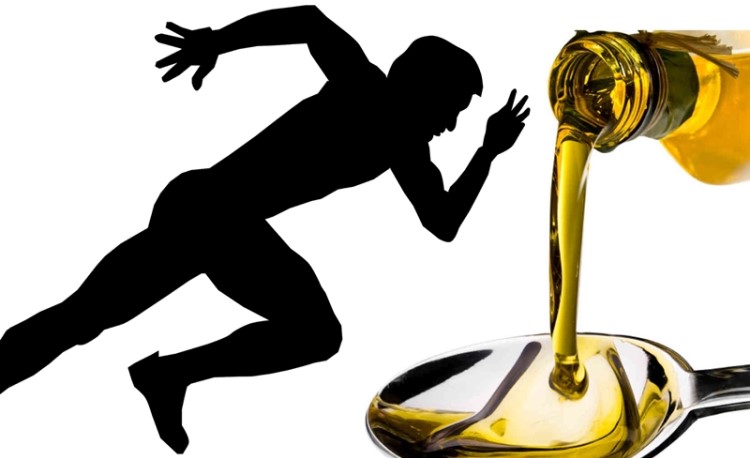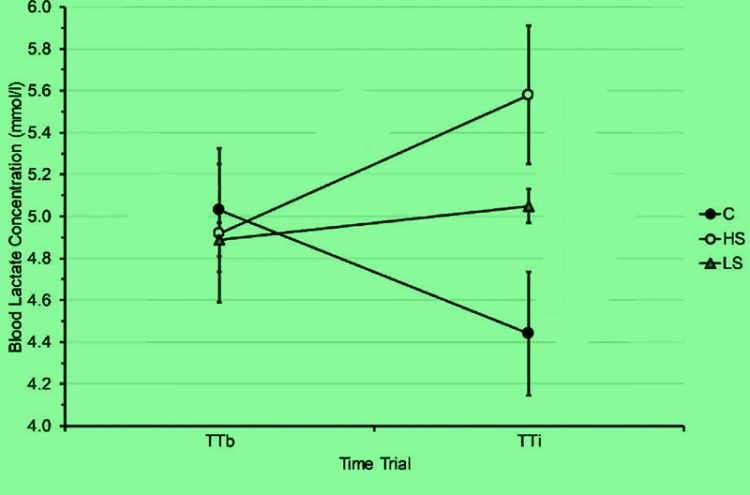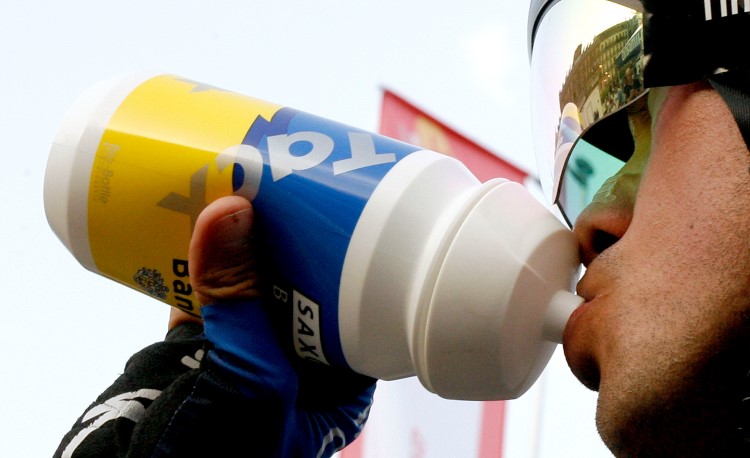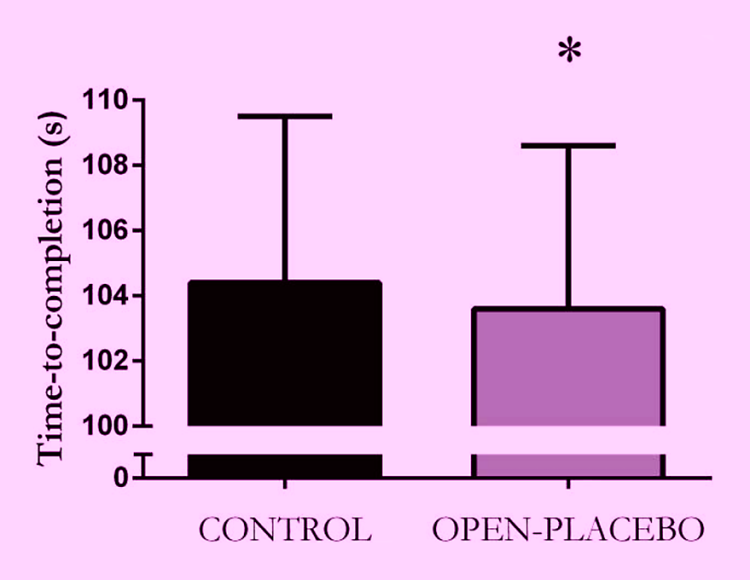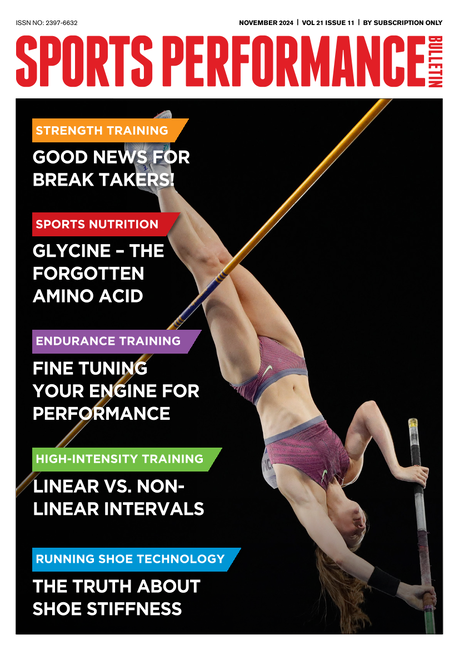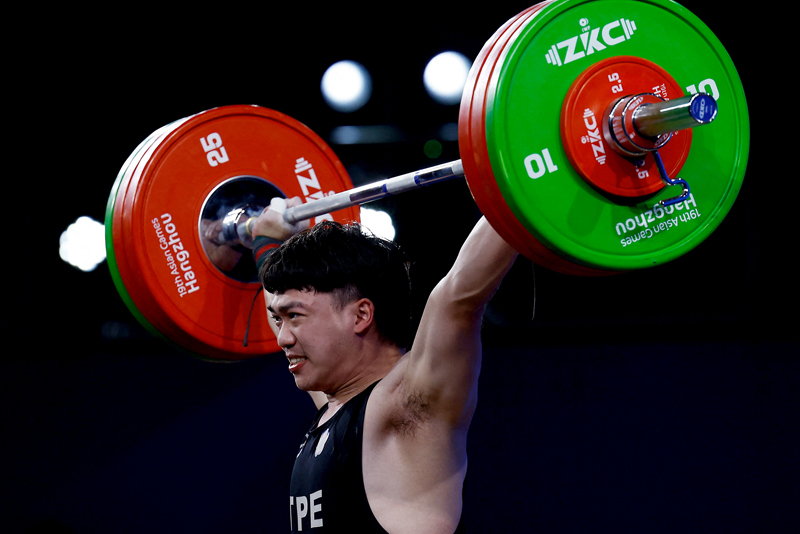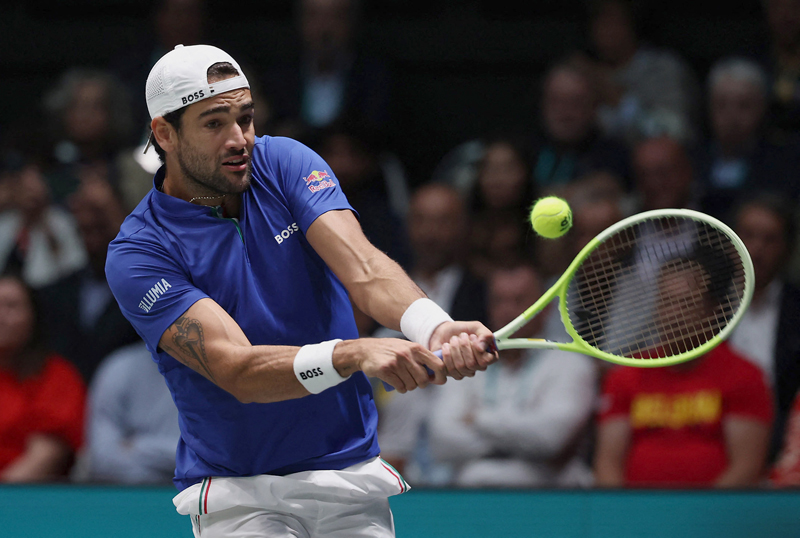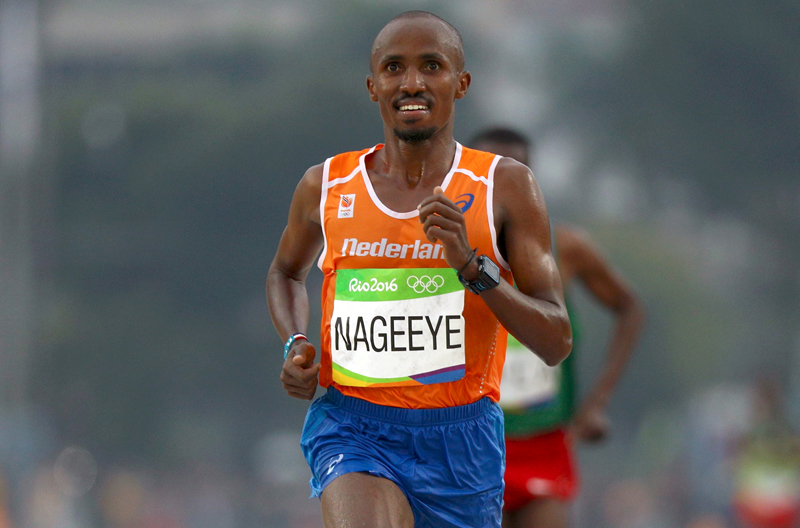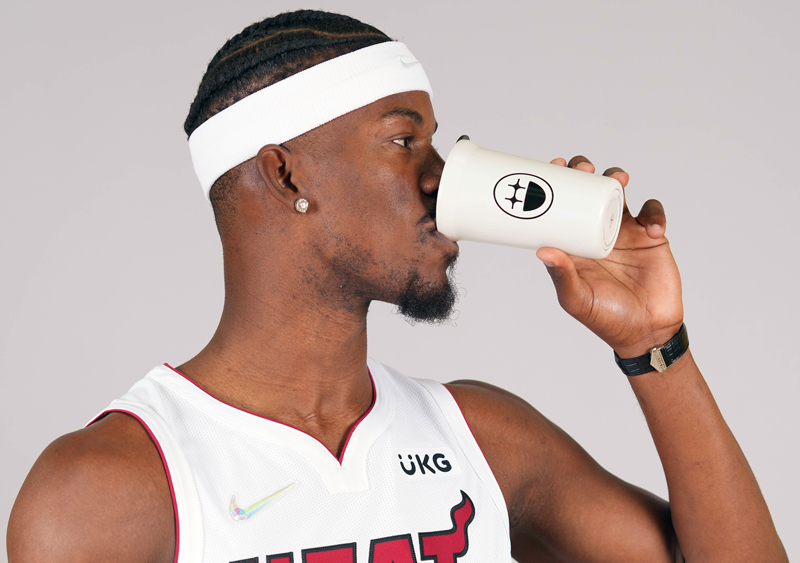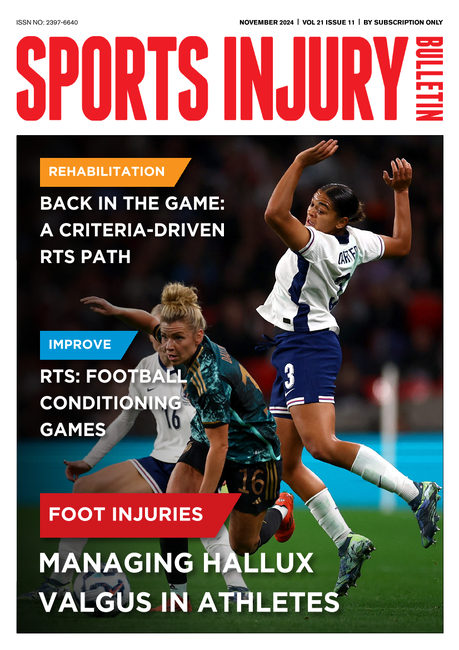You are viewing 1 of your 1 free articles. For unlimited access take a risk-free trial
The placebo effect: more to it than meets the eye!
SPB looks at the placebo effect in sports supplementation, and explains how athletes can harness it to work in their favor.
It’s long been known in medicine that the power of positive suggestion can provide a real and significant improvement in symptoms. This is the so-called ‘placebo effect’, where the mere belief that a medicine or some other form of treatment will provide benefits can actually produce some benefits. And these benefits can be had even if that treatment is nothing more than a sham - a completely inert substance that could not possibly benefit the patient in any physiological way.
Many people, including athletes, are easily seduced by the placebo effect, spending large amounts of money on products where there is no solid evidence that a particular supplement provides meaningful physiological performance benefits. Make no mistake though, the placebo effect is very real, and when somebody believes that a product will benefit them, they may not only feel better but actually perform better too.
Overcoming the placebo effect
It’s precisely because of the placebo effect that doctors and scientists need to investigate the potential benefits of medicines (or other products such as sports supplements) using carefully controlled studies. This means that alongside the medicine, supplement or any other kind of intervention, a control group is used – a group of subjects who go through the same experimental protocol but instead of using the potentially beneficial medicine/treatment, they are told they’re getting the same treatment but are instead given a completely inert placebo – a sham treatment. Because both groups of subjects experience the same placebo effect, you know that any significant difference in outcomes between the ‘real’ group and the control group is not down to the placebo effect, but down to actual benefits provided by the treatment.
Placebo vs. no-placebo effects during sports supplementation
Here’s a mind-bending question for you: if the placebo effect is real when you give a dummy sports supplement pill or some other kind of treatment, do some of the benefits you receive from a ‘real’ and proven supplement (eg caffeine or creatine) also result from the placebo effect of knowing you are supplementing with a product that has been shown to be effective in previous studies? Put simply, how much of the benefit of creatine, caffeine etc comes from physiological effects and how much comes from the act of ‘taking something’?
To try and answer that and give you some idea of the importance of the placebo effect in when using sports supplements for enhancing performance, we can look at data from a 2021 study on this topic by Brazilian scientists(1). The researchers wanted to investigate the relative magnitude of the placebo effect associated with two nutritional supplements (caffeine and sodium bicarbonate [a lactic acid buffer]) by pooling all the previous data from studies on this subject (a meta-study).
Thirty four studies were gathered together for the analysis containing both placebo and non-placebo control sessions. In plain English, they looked at studies on caffeine/bicarbonate supplementation where one group of athletes received the ergogenic aid (either creatine or bicarbonate) and the control group received either a placebo pill or nothing at all. They then looked at the performance results from these control groups to see how receiving an inert supplement compared with getting nothing at all (in theory, they should be identical).
“Giving an inert pill boosted performance compared to giving nothing, even though the placebo pill could not have exerted any physiological effects.”
Thirty-four previous studies were included and analyzed in this study and the results were fascinating. There was a small but potentially important placebo effect with nutritional supplementation studies. In other words, giving an inert pill boosted performance compared to giving nothing, even though the placebo pill could not have exerted any physiological effects.
The researchers went onto conclude that “A substantive proportion of a supplement’s effects may be due to placebo effects, with the relative proportion influenced by the magnitude of the overall ergogenic effect”. In other words, even when supplements are known to have a real performance-boosting effect (eg caffeine, creatine, carbohydrate etc), some of that performance gain comes from the placebo effect as a result of merely taking the supplement! They also stated that: Wherever possible, intervention studies on sports supplement should use a three-pronged structure: the active supplement group, a placebo supplement group of controls and a group of controls receiving nothing at all. This approach can then identify the proportion of the effect estimated to come from placebo effects and better estimate the actual physiological plus psychobiological aspects (placebo effects) associated with performance in the real world.
Brain power and placebo
The placebo effect is an integral effect of brain and information processing. That the brain and our belief systems can have a profound effect on the way we feel and perform is becoming ever more apparent as new studies show. For example, studies on endurance athletes show that when your mood state is elevated by the use of music, you can exercise at a higher intensity but your perception of effort doesn’t change(2). Likewise, expectations and beliefs can affect your performance. For example, runners who are told that they will be completing 10km run experience a sudden jump in perceived effort if, halfway through that run, they are told that the run distance is not 10km but is in fact 20km(3).
Also, other studies have shown that you can boost performance by ‘fooling’ the brain. In one study, cyclists were deceived by researchers. The cyclists - without access to any indication of their speed - thought that the speed set by researchers was equivalent to their best time trial speeds. However, the researchers had set it 2% faster. Of the 14 cyclists in the study, 10 significantly improved their performance over their theoretical best times(4). This showed that by fooling the brain into thinking that the body was working no harder (when it was), many of the cyclists were able to squeeze out a little more performance!
The placebo effect and physical characteristics of supplements
The placebo effect as a real and powerful impact on the way we feel and perform is undisputed among scientists. But in recent years, research has uncovered more and more dimensions to this effect. A good example of this comes from research by German scientists, suggesting that for athletes, the type of supplement and the way it interacts with the mouth can also affect how much placebo effect is generated(5).
In this study, the researchers compared three scenarios to see whether the type of placebo given affected performance. Thirty four athletes performed one time trial to establish a baseline, then three further time trials on a cycling ergometer in identical conditions. During these time trials, power output (objective effort), blood lactate (physiological effort) and the rating of perceived exertion (subjective effort) were measured and compared. The only difference between the three trials was what the cyclists took beforehand.
- No placebo – ie nothing given.
- An inert placebo consisting of small capsules containing four grams of amino acids (note that no study has ever shown that such a small amount of amino acids given prior to exercise boosts performance).
- A vanilla-grapefruit flavoured pudding containing the same amount of (inert) amino acids plus fibre and water.
To reiterate, none of the athletes received anything that could boost physiologically performance. In effect therefore, this was a no-placebo vs. a discreet placebo vs. a much more interactive placebo (the pudding) test!
“Research suggests that for athletes, the type of supplement and the way it interacts with the mouth can also affect how much placebo effect is generated.”
The results
The results showed that compared to taking the placebo as capsule or taking no placebo at all, when the cyclists consumed the placebo pudding, their actual physical performance improved significantly, even though their subjective levels of effort didn’t (see figure 1).
Related Files
Black circles = no placebo; white circles = pudding placebo; triangles = capsules placebo. TTB = baseline time trial result; TTi = placebo trial result. While subjective effort levels remained constant in all three placebo trials, those taking the pudding placebo worked significantly harder, producing higher levels of blood lactate.
Compared to their baseline measures, the cyclists taking the pudding placebo worked harder resulting in higher blood levels of lactate despite feeling no extra effort subjectively. In other words, the physical characteristics of the placebo used affected performance, even though none of placebos contained anything known to enhance performance! In particular, the pudding placebo was able to decouple to some degree the physiological and psychological effort of exercise.
How and why was this possible? The researchers put it down to the ‘high salience’ characteristics of the pudding. This pudding contained ingredients that stimulated both bitter and sweet taste receptors in the mouth. It also contained a small amount of cornstarch, which is known to stimulate carbohydrate receptors in the mouth. This pre-exercise mouth receptor stimulation may help to slightly ‘decouple’ the normal relationship between perceived exertion and actual exercise intensity.
The low-salience capsules meanwhile offered no such receptor stimulation – they were just swallowed with water. Further evidence for this theory comes from the fact that the athletes’ belief concerning the true nature of the ergogenic aid (inactive placebo vs. ergogenic supplement) did not influence the ergogenic placebo response – in other words, these gains were as a result of the placebo effect, but instead of being ‘belief driven’ were ‘mouth receptor’ driven.
Does choice affect the placebo effect?
Another curious factor that seems to impact the size of a placebo effect is choice. In a meta-analysis study published last year by a team of US and Aussie scientists(6), researchers pooled data from 15 previous studies that had investigated the magnitude of the placebo effect when taking placebo pills for a range of conditions. These included studies on pain, discomfort, sleep difficulty, and anxiety.
“The placebo effect is greater when people choose to take something (and therefore feel they are exercising control) rather than just being given it.”
What the analysis showed was that when the participants in these 15 studies were able to choose a treatment (remember, all the treatments offered were in fact placebos and known to have no physiological benefits), the perceived benefits from that placebo treatment was significantly greater than when they were just instructed to take a treatment by the physician without choice. What this indicates is that the placebo effect is greater when people choose to take something (and therefore feel they are exercising control) rather than just being given it. So for athletes pondering over supplements for example, freely choosing a supplement (that is known to produce no physiological benefits) from a range of options on offer might yield more of a performance gain than taking that same product when dished out by a coach or team physician!
Can disbelievers benefit?
At the beginning of this article, we mentioned how the power of positive suggestion and the mere belief in the value of an inert placebo can produce a positive effect on performance (which is why placebo-controlled trials are important to distinguish actual physiological benefits of a sports supplement). Amazingly however, some research suggests that even when athletes understand that a sports supplement does not produce any physiological benefits whatsoever, simply taking that (placebo) supplement can still produce performance gains.
In a 2019 study titled “I put it in my head that the supplement would help me”: Open-placebo improves exercise performance in female cyclists” by Brazilian scientists, researchers investigated the effect of an ‘open-placebo’ on cycling time-trial performance(7). Twenty-eight trained female cyclists completed a 1km cycling TT following a control session or an open-placebo intervention. The open-placebo intervention consisted of a one-to-one presentation, provided by a medic, in which the concept of open-placebo was explained to the participants.
Essentially, this 5-minute presentation explained that there were zero benefits to taking the placebo supplement (two red and white capsules containing flour) and that performance would NOT be enhanced. In the control session, the participant simply sat quietly for five minutes. Fifteen minutes later. The cyclists performed the time trial, during which heart rate and ratings of perceived exertion (RPE) were monitored throughout exercise, while blood lactate was determined pre- and post-exercise. Post-exercise questionnaires were also used to gain insight into the perceived influence of the supplement on performance.
“Unconscious placebo effects (for example fatigue and pain tolerance responses) may take place even if the individual’s expectations go in the opposite direction.”
The results showed that the open-placebo trial improved time-to-completion by around one second (an improvement of 0.7%) – see figure 2.
Although the participants knew that the placebo pills would offer no performance benefits, some of the cyclists still responded strongly and the overall effect was positive (faster times) for the group as a whole.
Power output also improved, averaging 239 watts in the control trial and 245 watts in the open-placebo trial. While these improvement were not huge, they were however statistically very significant. Although this difference might appear small, this improvement likely represents a meaningful and practically significant difference in performance at the elite level. Heart rates, perceived exertion and blood lactate levels meanwhile were not different between sessions. Individual data analysis showed that 11 individuals improved, 13 remained unchanged and 4 worsened their performance with open-placebo.
Pavlovian conditioning
What was really fascinating was that positive expectations did not appear necessary to induce performance improvements in the cyclists who responded well - suggesting that some kind of unconscious processes were occurring in some of the cyclists, but not others. Why were these positive effects seen in some of the cyclists? A possible explanation is that unconscious placebo effects (for example fatigue and pain tolerance responses) may take place even if the individual’s expectations go in the opposite direction. These unconscious effects might be made possible by classical Pavlovian conditioning – ie athletes who have taken supplements in the past experience placebo effects, which are ‘learned’ over a period of time. These effects can then take place even when the athlete doesn’t believe at the conscious level that the placebo will work!
Why the variation in responses between the cyclists? This might be related to how readily the information given by the medic (that the pills wouldn’t produce any benefits) was accepted. It is well known that some personality types are less trusting of figures on authority and official narratives, and therefore less willing believe official explanations and follow instructions. For example, research shows that healthcare staff with ‘Type-A’ personalities (extrovert and confident) were likely to be less believing and compliant when following instructions regarding (their own) health and safety(8). Another factor relates to an individual’s use of imagination mental imagery; some of the best responders in the open-placebo study reported using imagery such as “During the exercise, more or less halfway, I remembered the tablets that I had taken, I saw the colour and the shape of them in my head and imagined that they were making me more ‘powerful”.
Practical advice for athletes
The recent findings on the placebo effect in sports supplementation are fascinating and reveal the complexity of the interaction between brain, perception, beliefs and performance. But for athletes seeking maximum performance, the question is how these findings can be harnessed to provide a competitive edge?
Let’s start off by reiterating that the placebo effect is very real and very powerful. That means it should not be dismissed lightly, and should be made use of wherever possible. Regarding the findings above, we can draw a few conclusions:
- Firstly, while the evidence for some supplements is weak in clinical trials, if you honestly believe that they work for you, the chances are they will help performance. Maybe a good slice of the extra performance you experience is from the placebo effect. But so long as the supplement in question is relatively inexpensive and healthy (or at least has no health risks), so what?
- Secondly, when using sports supplements to enhance performance, those that involve taste, smell and texture (eg drinks or certain foods) are likely to deliver a bigger placebo effect than the same active ingredients delivered in a tablet or capsule. This can help inform which products you use.
“If you honestly believe that supplements work for you, the chances are they will help performance.”
- Thirdly, there’s good evidence that choice and empowerment when using a supplement will increase the placebo effect. So if you’re going to take a product for which there’s only weak evidence, at least make sure it’s something YOU have decided works for YOU – rather than taking an alternative product (with weak evidence) recommended by somebody else!
- Fourthly, be aware that even if a supplement you take is only delivering a placebo effect, that effect is real, and that you may perform less well if you stop taking it (even if there’s little evidence of a physiological effect!).
- Finally, while it’s great to trick the brain and try and maximise any placebo effect, an even better way to guarantee enhanced performance is to use proven ergogenic supplements such as caffeine, creatine and good old carbohydrate! These kinds of supplements have been tested using controlled studies and shown to produce a significant uplift in performance, above and beyond any placebo effect thanks to the physiological benefits they deliver to the exercising body.
References
1. Med Sci Sports Exerc. 2021 Aug 1;53(8):1766-1777 / 2. BMC Sports Sci Med Rehabil. 2023 Feb 21;15(1):21 / 3. Appl Physiol Nutr Metab. 2011 Feb;36(1):23-35 / 4. Int J Sports Med. 2016 May;37(5):341-6 / 5. PLoS One. 2018 Jun 11;13(6):e0198388. doi: 10.1371/journal.pone.0198388. eCollection 2018 / 6. Ann Behav Med. 2022 Oct 3;56(10):977-988 / 7. PLoS One. 2019; 14(9): e0222982 / 8. Int J Occup Saf Ergon. 2015;21(4):464-70.
Newsletter Sign Up
Testimonials
Dr. Alexandra Fandetti-Robin, Back & Body Chiropractic
Elspeth Cowell MSCh DpodM SRCh HCPC reg
William Hunter, Nuffield Health
Newsletter Sign Up
Coaches Testimonials
Dr. Alexandra Fandetti-Robin, Back & Body Chiropractic
Elspeth Cowell MSCh DpodM SRCh HCPC reg
William Hunter, Nuffield Health
Keep up with latest sports science research and apply it to maximize performance
Today you have the chance to join a group of athletes, and sports coaches/trainers who all have something special in common...
They use the latest research to improve performance for themselves and their clients - both athletes and sports teams - with help from global specialists in the fields of sports science, sports medicine and sports psychology.
They do this by reading Sports Performance Bulletin, an easy-to-digest but serious-minded journal dedicated to high performance sports. SPB offers a wealth of information and insight into the latest research, in an easily-accessible and understood format, along with a wealth of practical recommendations.
*includes 3 coaching manuals
Get Inspired
All the latest techniques and approaches
Sports Performance Bulletin helps dedicated endurance athletes improve their performance. Sense-checking the latest sports science research, and sourcing evidence and case studies to support findings, Sports Performance Bulletin turns proven insights into easily digestible practical advice. Supporting athletes, coaches and professionals who wish to ensure their guidance and programmes are kept right up to date and based on credible science.
